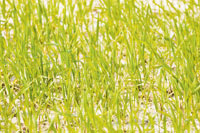Dry weather hits yield potential

The protracted dry spell is reducing yield potential in crops across parts of the country, according to ProCam technical director David Ellerton.
“Soil type is the dominant factor, with some crops on lighter ground looking very ill,” he said. “If we don’t get significant rainfall soon these crops will start sheading tillers, which will damage yield considerably.”
Spring crops were suffering the most with barley showing the worst symptoms, he noted. “It is already losing yield potential and if we don’t get heavy rainfall the penalty will be great.”
Most winter crops had been able to put roots deeper into the soil profile and were still able to access moisture, but the falling water table meant they would soon begin to suffer, too.
Magnesium deficiency was affecting many crops and growers should consider adding it to the worst affected stands, he said. “Irrigation will help sustain crops until rain comes and is worth considering for those who have access to water.”
In East Anglia, it was already too late for some crops to maintain their yield potential, even if rain fell in the next few days, said Peter Riley from Prime Agriculture. “All crops on lighter land are beginning to suffer and some are beginning to die back,” he said. “The yield damage could be considerable.”
Heavier ground would support crops for longer and a large proportion of yield could be recovered if significant rain fell in the next few days. Growers with access to water were starting to irrigate in order to limit damage, but for others there was little they could do apart from wait for rain to come, he said.
But in Devon, most crops were still holding up, said Neil Potts from Matford Arable. “If the dry spell continues we could encounter problems, but at the moment most crops are growing like fury.” Spring barley was the only crop suffering from the lack of moisture, he added.

